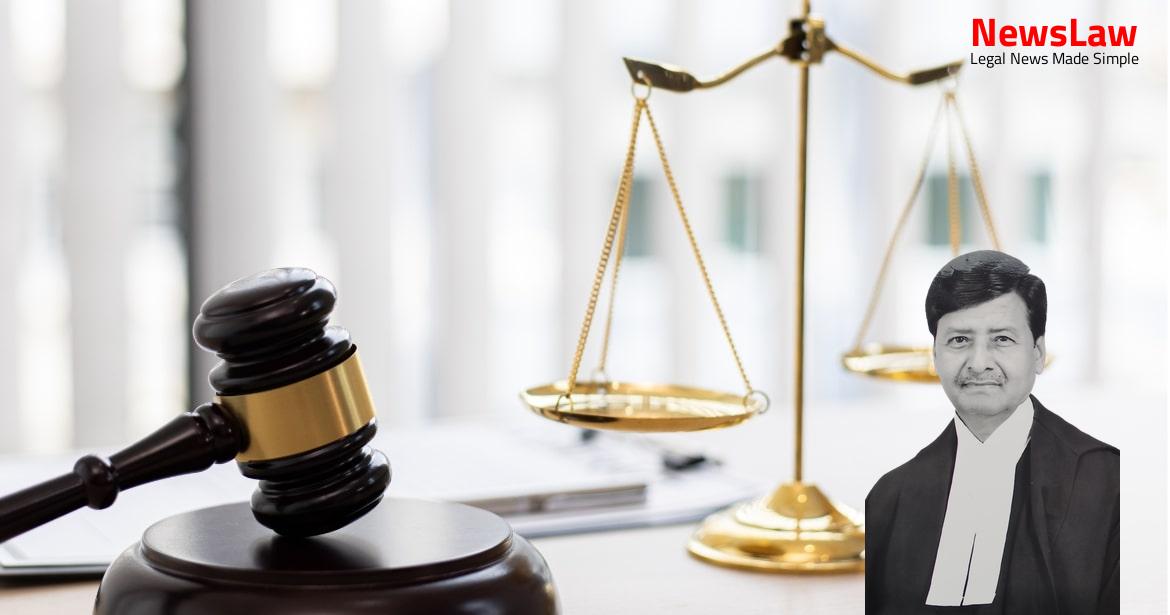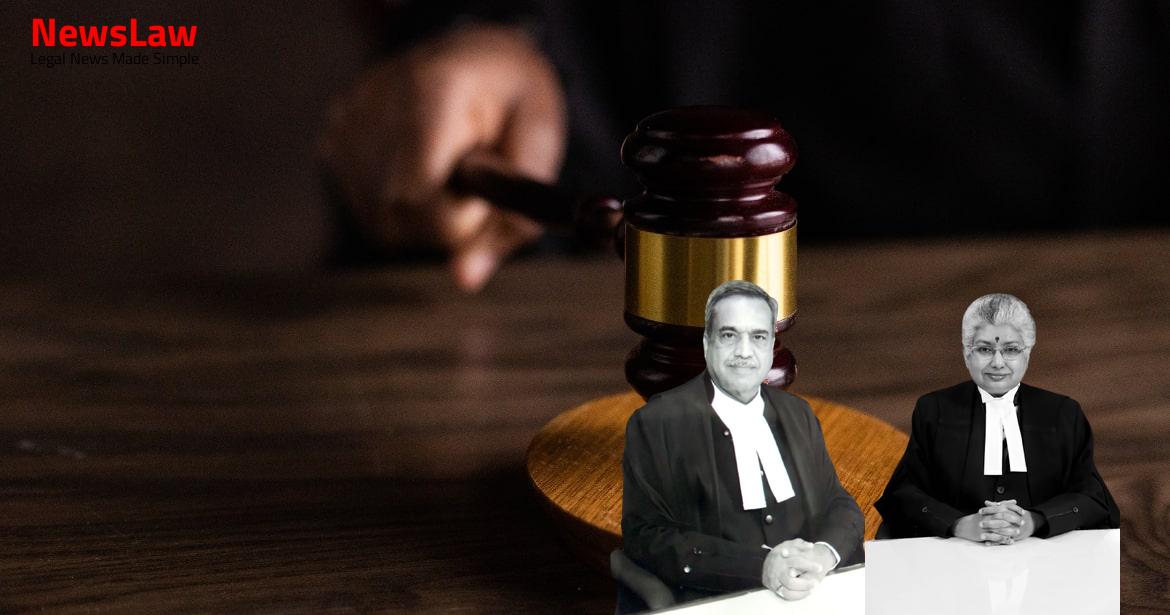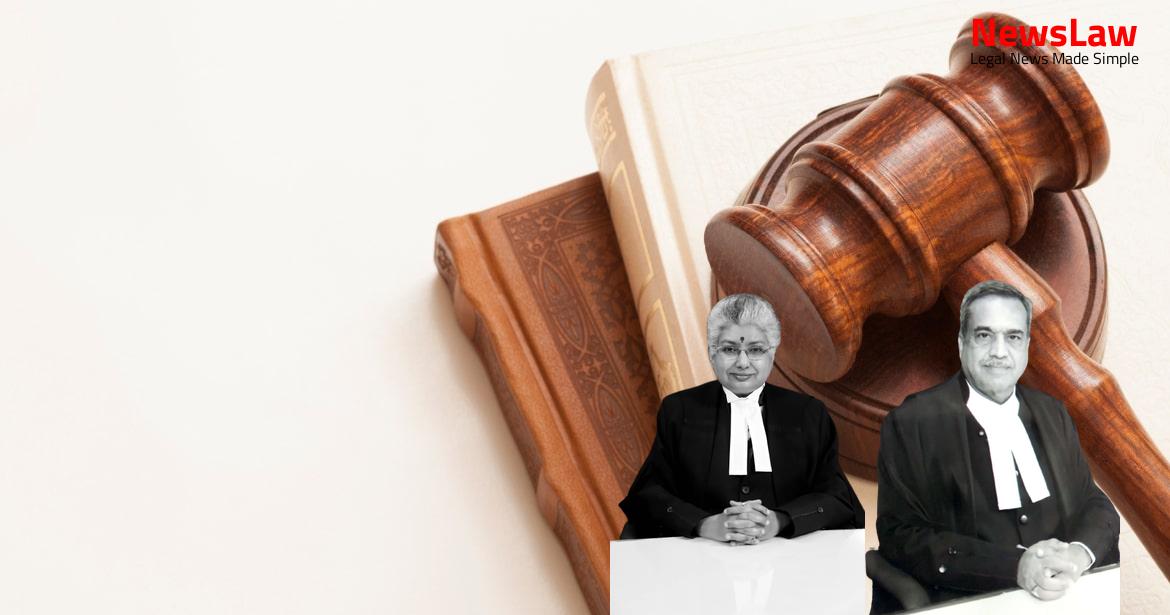Dive into the legal intricacies of a recent court case involving Chaitra Nagammanavar as the appellant and respondent No. 7 over an appointment dispute at Bangalore University. Explore how the interpretation of selection rules and age preferences impacted the outcome, and learn about the implications for similar cases in the future. This blog sheds light on the complexities of civil service appointments and the importance of adhering to advertised selection procedures, offering insights into the legal rights and obligations of both parties involved.
Facts
- The university issued an advertisement in 2018 to fill backlog vacancies for SC and ST posts, as per UGC regulations.
- Rule 6 of the 2001 Rules gives preference to ST candidates aged between 29-40 years.
- Both the appellant and Respondent No. 7 were ST candidates eligible for an Assistant Professor post in English department.
- The appellant was higher in merit than Respondent No. 7.
- The High Court directed the appointment of Respondent No. 7 due to the preference based on age bracket.
- The Division Bench confirmed the order of the Single Judge and directed the appointment of Original Name as per the 2001 Rules.
- The appellant, originally appointed candidate, filed a Civil Appeal against this decision.
- The case pertains to three legislations: Karnataka State Civil Services Act, 1978; Karnataka SCs, STs and OBCs (Reservation of Appointments etc.) Act, 1990; and Karnataka State Universities Act, 2000.
- The university advertised ‘Mode of Selection’ as per the 2001 Rules but appointed the appellant based on merit, leading to a challenge by Original Name through a Writ Petition.
- The Single Judge of the High Court set aside the appellant’s appointment citing the 2001 Rules’ age bracket requirement of 29-40 years, which the appellant did not fulfill.
Also Read: State of Rajasthan vs. Appellant: Stamp Duty on Insurance Policies
Arguments
- Mr. Shailesh Madiyal, learned Senior Counsel for the appellant, argues that the advertisement by the university mentioning the selection under 2001 Rules is a mistake.
- He points out that Section 78 of the Universities Act gives precedence to the provisions of this law over other laws.
- The argument emphasizes that the university should be governed by the Universities Act and its Statutes, not by rules under the Karnataka State Civil Services Act, 1978.
- Madiyal asserts that the university is autonomous and not bound by rules meant for State Civil Services.
- Mr. Gagan Gupta, Senior Counsel for respondent no. 7, argues that the government fulfilled its mandate under Sec. 4(1A) by specifying the method and manner of selection through university’s own notification referencing the 2001 Rules.
- He contends that the purpose of introducing Sub-Section (1A) was to allow universities to adhere to the 2001 Rules, which was achieved through the university’s notification.
- Mr. Gupta cites letters from the State Government instructing the university to follow the 2001 Rules as further support for his argument.
Also Read: State of M.P. v. Pernod Ricard India Ltd. : Legal Interpretation of Substituted Rules
Analysis
- The amendment to the Reservation Act, 1990, specifically the introduction of sub-section (1A) required establishments like universities to fill backlog vacancies following the method prescribed by the Government.
- The main purpose behind the amendment was to ensure compliance with the 2001 Rules for universities.
- The State Government issued letters to the university directing them to follow the 2001 Rules for filling SC/ST and OBC vacancies.
- The university issued an advertisement stating that the ‘Mode of Selection’ would be as per the 2001 Rules in response to the Government’s demand.
- The necessity of Government specifying the method and procedure for filling backlog vacancies is emphasized due to variations in service conditions across establishments.
- The State Government’s failure to issue a notification specifying the procedure for identifying and filling backlog vacancies poses a legal challenge.
- The introduction of sub-section (1A) was provoked by universities not following the 2001 Rules, hence extending the provision to universities.
- The university’s Board of Appointment is tasked with identifying and filling up SC/ST backlog vacancies as a one-time measure within a specified time.
- The legality and validity of the university’s advertisement declaring the application of the 2001 Rules for filling vacancies are beyond doubt.
- The university must adhere to what was declared in its advertisement regarding the 2001 Rules for selection procedures.
- Sec. 53 of the Karnataka SCs, STs and OBCs (Reservation of Appointment etc.) Act, 1990 establishes a Board of Appointment for selecting teachers in the University.
- Sec. 54 allows appointments in accordance with promotion schemes, subject to reservation rules for SCs, STs, and OBCs.
- Appointments for professors, readers, principals, and assistant professors are made by the syndicate as per the scheme by UGC.
- Sec. 78 of the Universities Act gives it overriding effect over other statutes.
- Sec. 4 of the Reservation Act, 1990 mandates reservation of appointments for SCs, STs, and OBCs in civil services and establishments.
- Uncertainty existed regarding the applicability of Sec. 4 for teacher appointments as it pertains to civil services.
- The process for calculating vacancies and filling them is specified by the State Government.
- Definitions of ‘establishment’ and ‘appointing authority’ under the Reservation Act, 1990 are crucial.
- The newly added sub-section (1A) to Sec. 4 emphasizes the authority of the appointing authority.
- University may consider creating a supernumerary post to accommodate the appellant
- Unfortunate situation arose due to university’s indifferent conduct
- Discretion justified due to extraordinary situation
- Appellant’s situation not due to her actions
- Respondent No. 7 to succeed and be restituted, but appellant’s concern also to be addressed
Also Read: Case Analysis: National Consumer Disputes Redressal Commission vs. Promotional Trailer Deception
Decision
- Civil Appeal Nos. 6772-6773/2023 dismissed against the High Court’s judgment.
- Appellant’s appointment dated 27.12.2019 was set aside by the Single Judge.
- Division Bench granted a stay on the Single Judge’s decision.
- University has been given the authority to make a decision on the issue and pass necessary orders.
Case Title: CHAITRA NAGAMMANAVAR Vs. THE STATE OF KARNATAKA (2024 INSC 367)
Case Number: C.A. No.-006772-006773 – 2023



